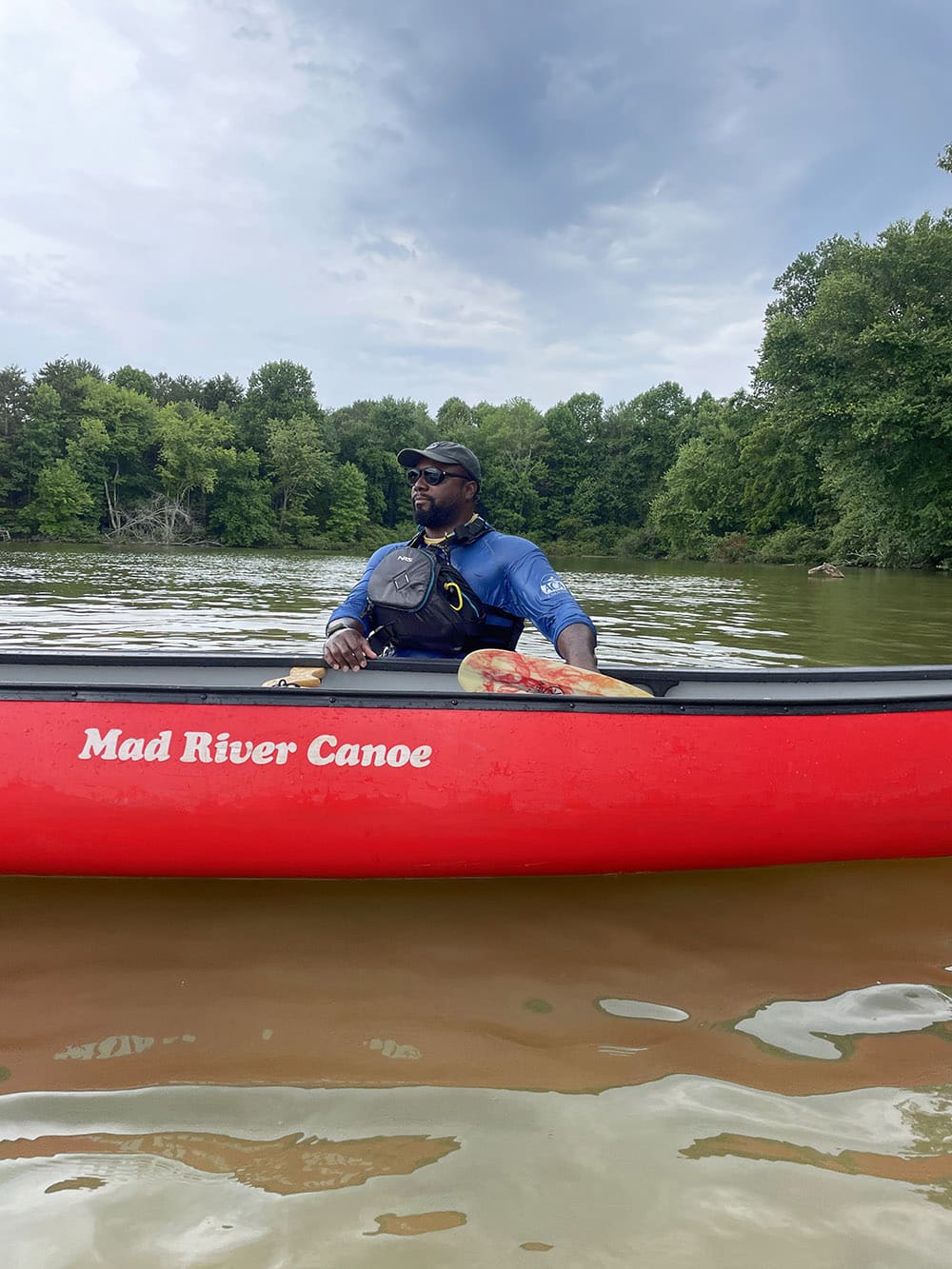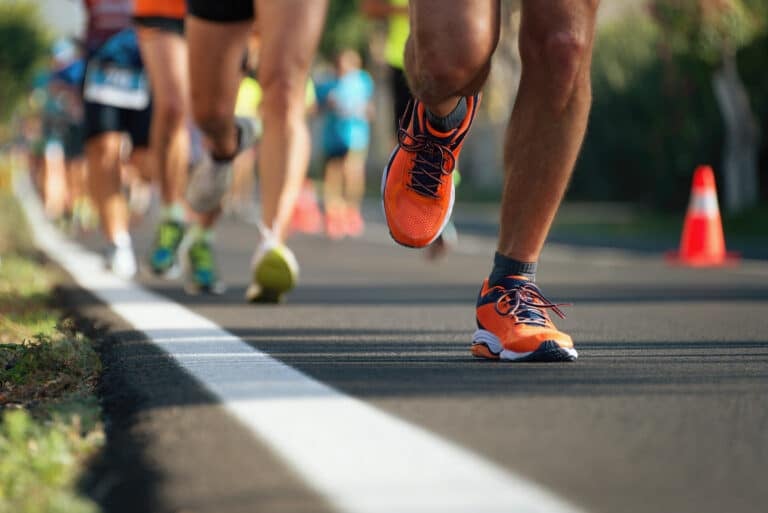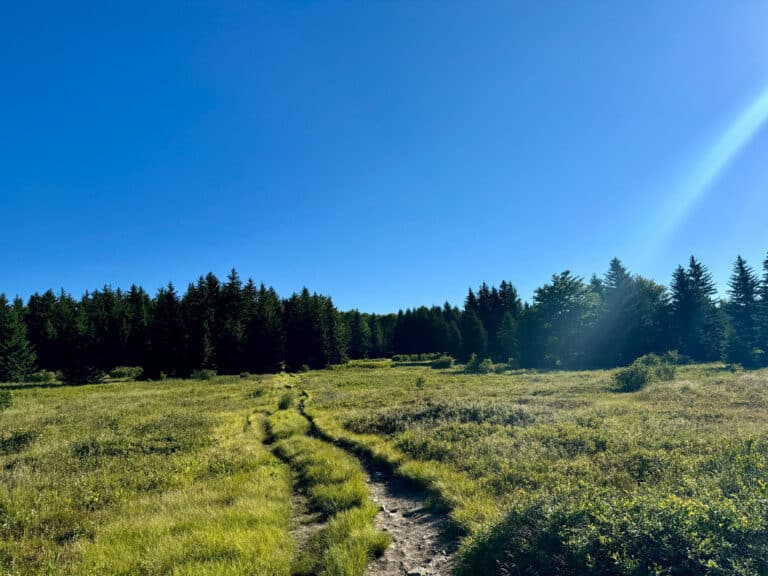A new academy trains paddlers and broadens outdoor inclusivity
When Gerry Seavo James organized a Black Lives Matter Paddle Out on the Kentucky River to honor Breonna Taylor, George Floyd, and Ahmaud Arbery in the summer of 2020, many people in his paddling circle wouldn’t particpate. As the founder of of the Explore Kentucky Initiative, James works to break down barriers people of color face accessing the outdoors, but he says he often faces pushback.
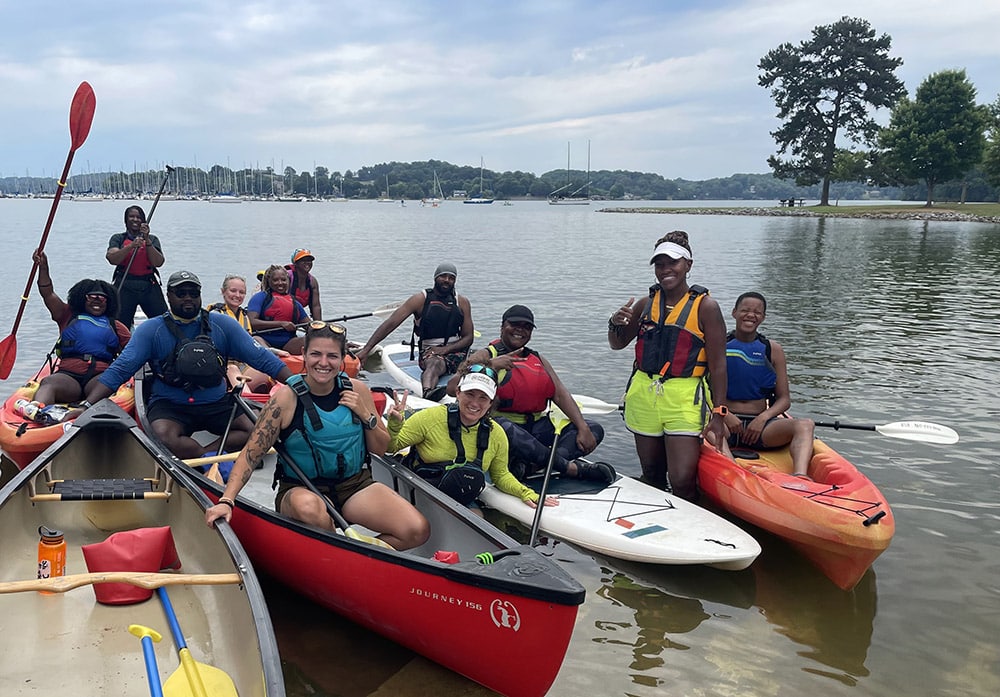
He was once directly asked, “There’s no one at a boat ramp blocking Black people from getting on the water, so why do you talk about it like that?”
After almost a decade working in the outdoor industry, James has built a broad resume: leading youth camps, directing paddle races, and developing a blueway trail. He’s also observed how equipment costs, time constraints, and lack of transportation make it difficult for those from marginalized communities to participate in mountain sports. “A lot of communities of color were built without access to green spaces or rivers,” James said.
Years of dealing with the impediments to promoting recreation equity left James feeling burnt out. But his long-time dream of creating a more inclusive paddle training program kept him going
The Paddlesports Leadership Academy (PLA)—a collaboration with adventure coach Anna Levesque, owner of Mind Body Paddle, and Lizzy Gardner, program manager of the Tennessee RiverLine—is training a new set of paddling leaders in underserved communities. The PLA was designed to increase participants’ paddle craft knowledge across disciplines, ultimately helping them earn ACA Community Paddlesport Leader certification. Unlike other ACA instructor courses that focus on one type of boat, this certification gives a broad overview of kayaking, canoeing, and standup paddleboarding techniques, as well as safety and leadership training.
At the first PLA event last June, nine community leaders from across the Southeast met in Knoxville for five days of paddling. Each participant received free admission, as well as a travel stipend, lodging, food, sponsored gear, and a free first-aid course. “When you think of outdoor recreation, a lot of people think about super steezy people hucking off a waterfall,” James said. “I wanted to spread the stoke to everybody.”
Those efforts include supplying the funds and equipment needed for training, and James reiterates his focus on developing Black leaders and leaders of color in the paddling community is not about excluding people. “It’s more about reaching people that traditionally have been underserved because of discrimination,” he said.
When he took his first standup paddling instructor course in 2015, James had to drive from Kentucky to Florida to find an instructor and slept in his car throughout the course’s multi-day run. Since that time, James said he is still often the only Black instructor at events.
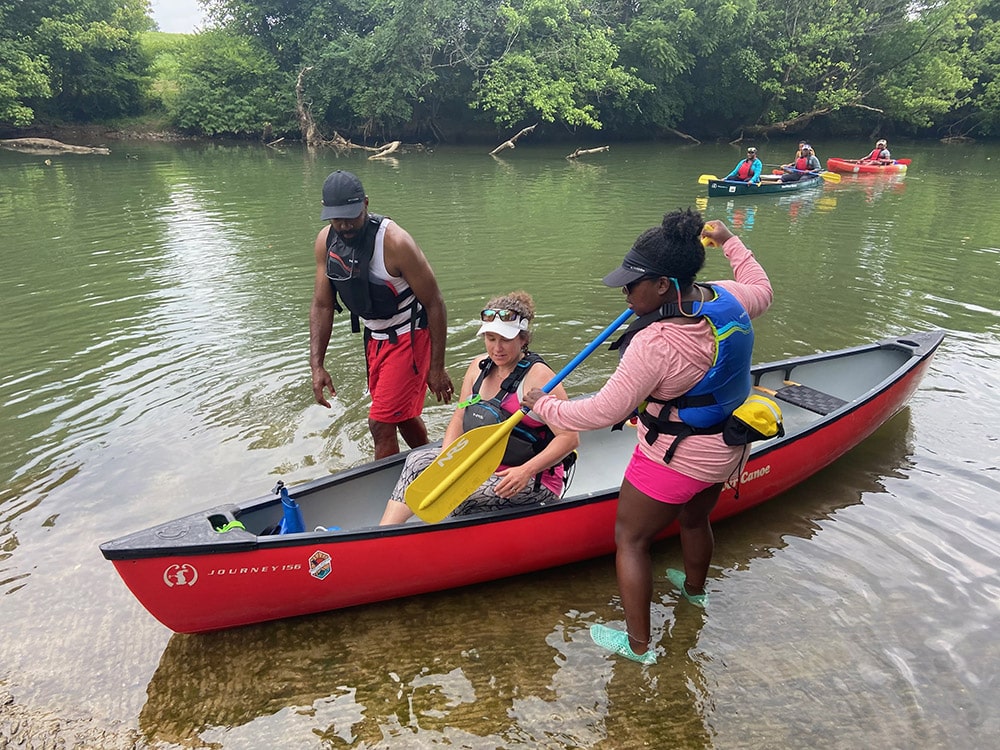
Sheryl Ely, director of parks and recreation in Knoxville, Tenn., has had similar experiences. “There’s a huge gap in the people that look like me on the water,” Ely, who recently took a PLA course, said. “Sometimes when you see people that look like you in spaces that you haven’t been, you feel a little bit more comfortable.”
“When you think of outdoor recreation, a lot of people think about super steezy people hucking off a waterfall,” James said. “I wanted to spread the stoke to everybody.”
At her course Ely found like-minded support and tested her limits as an adventurer. “As a half-century person who has some aches and pains, when you’re flipped out of a canoe and have to get back into that canoe when you’re not really comfortable in the water really shows that you can do it,” she said.
Moving forward, the PLA team hopes to host training events around the country, building a larger network of paddling leaders. “A lot of DEI [diversity, equity, and inclusion] programming tends to be a one-and-done thing,” PLA instructor Lizzy Gardner said. Instructors hope previous cohorts remain a part of the program, returning as teachers in future sessions to continue their leadership experience.
As founder of H2O Life in Chattanooga, Tenn., Shawanna Kendrick leads a variety of outings designed to help women of color experience the physical and mental benefits of spending time in nature. When she learned about PLA from a colleague, she hoped taking a course would improve her skills as an outdoor facilitator.
The course helped boost her confidence in her own abilities, and PLA also introduced her to a network of people working on similar projects and goals. Working side-by-side with eight other Black participants, Kendrick found community in an industry that often uses diversity to check a box. “There was not one time I felt out of place or unsafe,” Kendrick said. “As a Black woman, that is not always my norm.”
Cover Photo: Gerry Seavo James leads a workshop. Photo by Anna Levesque, Mind Body Paddle
